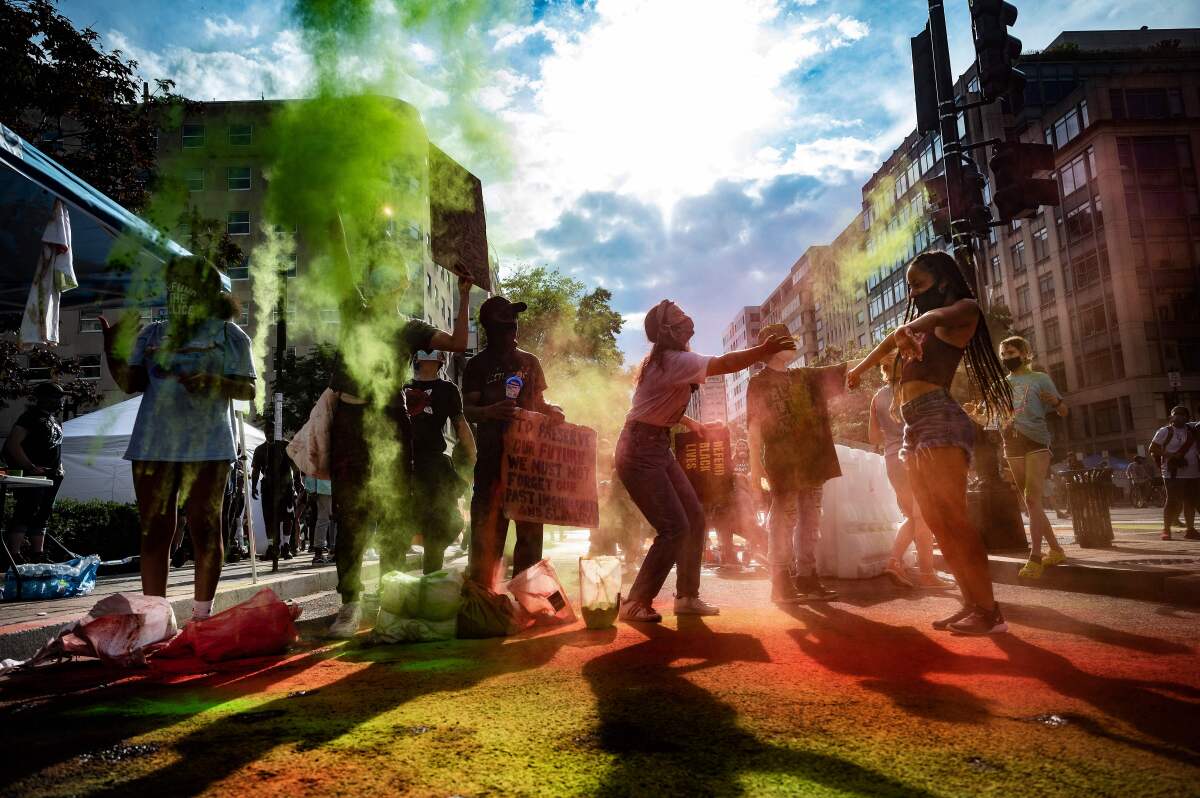Letters to the Editor: The complexities of ‘celebrating’ Juneteenth

- Share via
To the editor: The bittersweet feelings about Juneteenth that Sandy Banks wrote about in her June 27 column are real. The reality of life for many in the United States is contrary to what a faction of our society embraces, that acts by Congress were passed and therefore the idea of racism in America has been settled. The Civil Rights Act of 1964 was passed, but did it really give civil rights to all our people forever? The Voting Rights Act of 1965 was passed, did it really give voting rights to all our people forever? Did the Fair Housing Act of 1968 ensure that redlining would be abolished forever?
Anyone with a modicum of sense knows this is not true. The beautiful words “liberty and justice for all” did not become inclusive just because these acts were officially adopted by our country. We are a work in progress, not only for racial justice and liberty for all, but for our work to preserve our democracy, which must never be taken for granted.
Diane Welch, Huntington Beach
..
To the editor: After reading Sandy Banks’ Juneteenth column, we had an idea: What about taking inspiration for Juneteenth celebrations from the Jewish holiday of Passover, which commemorates the freeing of the Hebrews from slavery in Egypt?
Depending on how literally you take the bible, the Jews were slaves for generations in Egypt until Moses, God and their supporting cast arranged for a jail break (and, later a role for Charleton Heston). We celebrate this every year at our home with the Seder, retelling this story as if we were there and we were slaves that came forth out of Egypt. There is no shame in it; we tell the story every year so that we never forget. We are also reminded that, in every age, we must do all that we can to help others who are enslaved by tyranny.
At our Seder we also take the time to discuss the philosophical and contemporary aspects of the Passover story. As we all drink the cups of wine, the discussion can get boisterous, but that’s also part of the fun. And while some of the food we eat symbolically is, frankly, terrible, there’s something to take from that as well.
There’s a joke that every Jewish holiday can be summarized as “They tried to kill us, we won, let’s eat.” While that may sound flippant, to us it reflects the attitude of a people who, like those who were enslaved in the U.S. and learned of their freedom on June 19, 1865, have found a way to celebrate resilience.
Wendy Prober-Cohen and David Cohen, Tarzana
More to Read
A cure for the common opinion
Get thought-provoking perspectives with our weekly newsletter.
You may occasionally receive promotional content from the Los Angeles Times.









